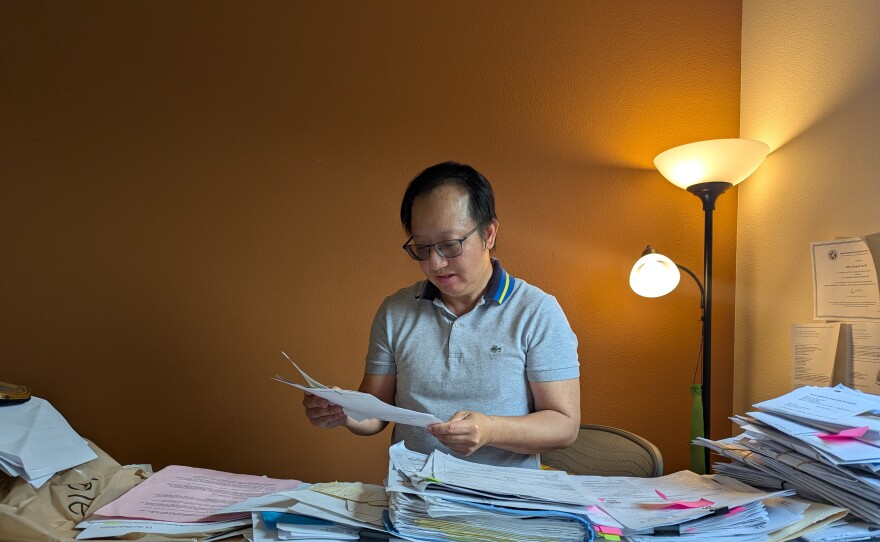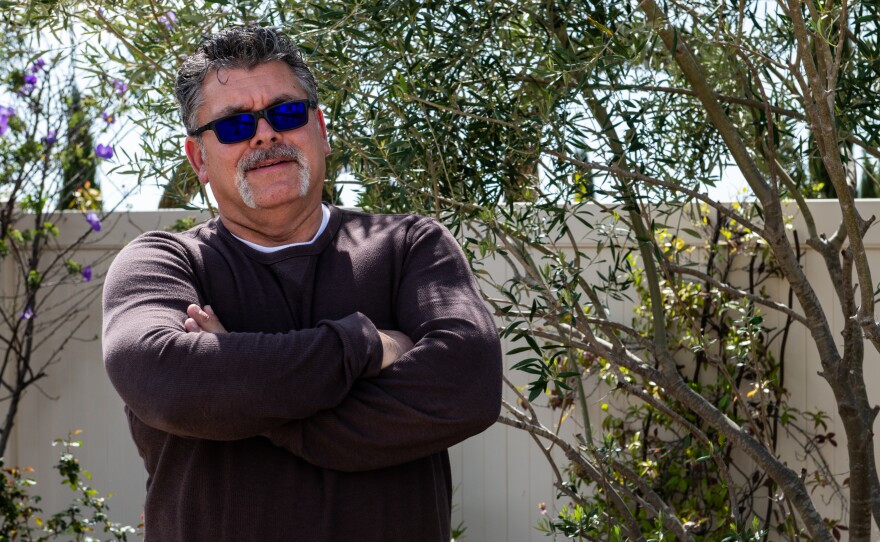More than five years after the COVID-19 pandemic began, San Diegans like Jason Rissman are still fighting to recover — not just physically, but in a health care system that often fails to support them. Rissman, a special agent with the U.S. Department of Homeland Security, contracted COVID-19 in December 2020 before vaccines were available. He spent 70 days in a coma.
“I text my wife, I said, ‘I’ve gotta go to sleep, for a while. I love you. I’ll talk to you when I wake up,’” Rissman recalled.
Like many with long COVID, he’s still dealing with residual symptoms and searching for adequate treatment.
There’s no official count of long COVID patients in San Diego, in part because many remain undiagnosed or are misdiagnosed. Experts at La Mesa Rehab say they’ve seen over 120 long COVID patients since the pandemic began. The clinic is one of just five in the county that is treating long COVID patients.
“People come in in tears saying, ‘I just want to go back to work. But I’m not the same anymore,’” said Christopher Molloy, the clinic’s administrator.
A recent Yale-led study revealed that 14% of 3,500 long COVID patients in the U.S. had not returned to work three months after falling ill.
Dr. Tami Peavy, the clinic’s clinical director, said there’s no official test or standardized treatment for long COVID. Patients are often referred to physical therapy without first being evaluated for respiratory issues, which can be a key part of the condition.
The lack of medical guidance leaves many patients struggling to advocate for themselves. Deborah Franklin, 49, has had long COVID since December 2021 and still deals with relentless coughing, body pain, blurry vision, and loss of taste and smell.
“I have like three different kinds of inhalers for my cough,” she said. “It’s so aggressive that I can’t take it.”
The barriers go beyond treatment. Since the expiration of California Senate Bill 1159 in 2024, workers must now prove they caught COVID-19 on the job to receive workers’ compensation.
Psychiatrist Dr. Allen Lee, who contracted COVID-19 in 2022, said navigating insurance has been one of the toughest parts. After a denied claim for a heart rate monitor, the bill was sent to collections.
“As you can imagine, being really tired and everything like that, it’s really hard to take care of these kinds of things,” he said.

Lee is now unable to work and finds even short moments with his children leave him bedridden for hours. “Regardless of how tired I am, these moments — you only have so long with your children,” he said.
Meanwhile, federal funding for long COVID research is declining. The Trump administration plans to close the Office for Long COVID Research and Practice, raising concerns about future care and support.
“We should be more prepared than that,” Dr. Peavy said. “We should certainly be taking better care of the patients who haven’t recovered from COVID.”
For many, the journey feels isolating and endless. Still, patients like Rissman aren’t giving up.
“I was too stubborn to die,” he said, “And I’m too stubborn not to get treated properly.”






